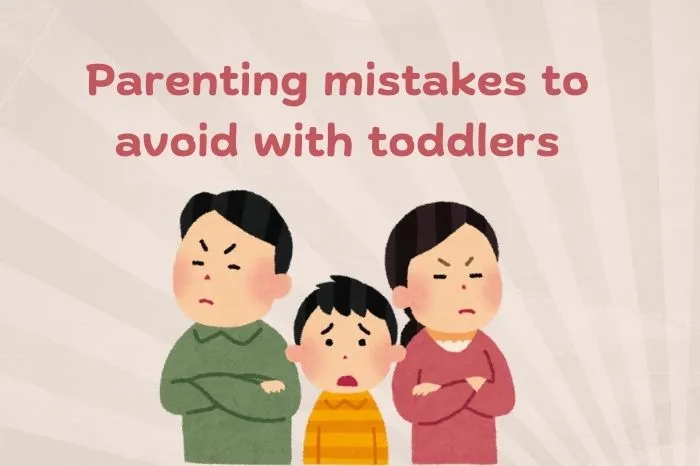We all wish to build a successful career, but do we actually strive for it? As you know, etiquettes matter a lot in professional workplaces to ensure a striving career. Are you making some grave mistakes that unintentionally become a blockage to your success? If yes, here is our guide on 3 Things to Avoid in the Workplace.
The workplace bombards you with opportunities, challenges, and risks. How you present yourself and combat these situations directly influences your career. Unintended mistakes or bad habits can prove lethal for you and your career. It's necessary to avoid mistakes and plan strategies to excel.
This guide explores 3 Things to Avoid in the Workplace. It provides consequences of the mistakes you are making, practical strategies to overcome them and cultivate a flourishing work environment.
Things to Stop Doing at Work
Work life is difficult as it takes effort, skills and talent, but side by side, it is you and your workplace manners that count. Every workplace has some etiquette to follow, but in this guide, we are discussing some common things to stop doing at work.
These common mistakes address everyone at work, from clerks, office boys, employees, and managers to even the boss. If you sidestep these mistakes, you can walk on the rail of a well-established, successful career with a strong relationship and reputation.
Avoid Being Late
Being late, whether arriving at the workplace or showing up for deadlines or meetings is a grave mistake. The workplace demands punctuality and time management from everyone working there.
Consistent tardiness can ruin a good impression of you and your work quality. Being a latecomer shows a lack of commitment and responsibility. In addition, you will be frustrated and late for every work opportunity and every chance to excel.
Consequences:
- Loss of Benefits: Excessive tardiness may result in reduced benefits, such as fewer vacation days or flexible work arrangements.
- Reduced Job Satisfaction: Repeated tardiness can lead to decreased job satisfaction and engagement.
- Undermines team trust and collaboration: Late arrivals can delay team projects, meetings, and deadlines, impacting overall productivity.
- Decreases productivity and efficiency: Unprofessional behaviour can disrupt teamwork and reduce overall productivity.
- Increases workload for colleagues: Colleagues may need to cover for the tardy individual, leading to increased workload and stress.
- Stifles professional development: Chronic tardiness can limit opportunities for training, mentorship, or networking.
- Shows Lack of Commitment: Your coworkers will not entrust any work to you.
- Questions about your credibility to work: Puts your reliability at a stack
- Strained Relationships: Tardiness can damage relationships with colleagues, supervisors, and clients.
Strategies to follow:
- Value punctuality: Understand the importance of being on time for your professional reputation.
- Set alarms: Use multiple alarms to ensure you wake up on time.
- Set deadlines: Assign specific deadlines for each task to stay on track.
- Use a time management tool: Employ a planner, calendar, or app to organize your schedule.
- Avoid multitasking: Focus on one task at a time to improve efficiency.
- Have a backup plan: Consider alternative transportation options in case of emergencies.
- Prioritize tasks: Determine which tasks are most urgent and complete them first.
- Set reminders: Prioritize things to keep on track
- Minimize distractions (e.g., social media, email notifications)
- Take regular breaks to recharge and focus
- Communicate with colleagues and supervisors regarding scheduling conflicts or delays
- Demonstrates respect for colleagues and supervisors
- Boosts productivity and efficiency
- Enhances professional reputation
- Reduces stress and anxiety
- Sets a positive tone for the workday
- Break down large tasks: Divide large projects into smaller, more manageable steps.
- Create a work-life balanced routine
Unprofessionalism
The workplace is a professional setting. You are there to build your professional career with the professional people around you. If you are unprofessional in your workplace, things will not work out for you in the short term or long term.
You cannot comprehend, but there’s a chance you're making this highly avoidable mistake in your career. Unprofessionalism affects your appearance, behaviour, communication, and overall work performance.
Your unprofessionalism shows in being disrespectful, dressing inappropriately, showing a negative attitude, poor communication, lack of accountability, dishonesty or uncooperative behavior.
Consequences:
- Damaged reputation: Unprofessional behaviour can tarnish your professional image and make it difficult to find new opportunities.
- Lost trust and respect: Colleagues and clients may lose trust and respect for you, impacting your relationships.
- Limited career advancement: Unprofessional behaviour can hinder your career progression and limit your opportunities for advancement.
- Disciplinary action: In severe cases, unprofessional behaviour may result in disciplinary action, including warnings, suspensions, or even termination.
- Decreased productivity: Unprofessional behaviour can disrupt teamwork and reduce overall productivity.
- Negative company culture: A toxic work environment created by unprofessional behaviour can deter talented employees from joining the organization.
- Lost business: Clients may be less likely to do business with a company that has a reputation for unprofessional behaviour.
- Legal issues: Unprofessional behaviour, such as harassment or discrimination, can lead to legal problems and financial losses.
Strategies to follow:
- Establish clear policies and expectations: Adhere to standards and avoid unethical practices.
- Provide training and development opportunities: Seek opportunities for professional development and stay updated on industry trends.
- Practice self-awareness and reflection. Be aware of your strengths and weaknesses and work on improving yourself.
- Learn from mistakes: Overcome mistakes by learning from them.
- Use respectful language: Avoid using offensive or inappropriate language.
- Communicate proactively: Pay attention to what others are saying and show that you are engaged.
- Address unprofessional behaviour promptly and consistently
- Maintain a professional attitude and demeanour: Maintain a positive and optimistic outlook.
- Foster open and honest communication: Express your thoughts and ideas honestly
- Encourage teamwork and collaboration
- Recognize and reward professional behavior
- Seek mentorship or coaching: Develop healthy coping mechanisms for stress.
- Foster a culture of accountability
- Follow proper email etiquette: Use a professional email address and follow proper formatting.
- Positive Attitude: Maintain a positive and optimistic outlook.
- Ensure effective teamwork: Contribute positively to team projects and collaborate with others.
- Conflict resolution: Handle conflicts professionally and constructively.
- Professional attire: Dress appropriately for your workplace.
- Avoid gossip: Refrain from spreading rumours or negative information about colleagues.
Must Read: 100+ Responses to The Tricky Question How Was Your Day?
Avoid Isolation:
Sometimes, you are so fully engrossed and focused on your work that you isolate yourself from other coworkers in the workplace. However, making it a habit or practicing it fully is a big no. Isolation at the workplace has severe consequences.
The workplace is a public setting involving many people. It is not related to anything personal. What is appreciative is that you meet and greet people around you and foster a strong bond with them. Interaction at the workplace is encouraging for maintaining a calm environment.
That is why networking is so important in the workplace. It lets you meet, interact with, and collaborate with new people. Isolation hinders network building. Gathering with your coworkers can go a long way toward a happy and smooth working life.
Consequences:
- Decreased job satisfaction: Feeling isolated can lead to a decline in job satisfaction and motivation.
- Increased stress: Isolation can contribute to higher levels of stress and anxiety.
- Lower self-esteem: Feeling disconnected from colleagues can negatively impact your self-esteem and confidence.
- Difficulty concentrating: Isolation can make it harder to focus on your work and tasks.
- Health problems: Chronic stress and isolation can lead to various health issues, such as depression, anxiety, and physical ailments.
- Reduced productivity: Isolation can hinder your ability to collaborate with colleagues and contribute effectively to team projects.
- Missed opportunities: Being isolated can prevent you from learning about new opportunities and advancements within your company.
- Career stagnation: Isolation can limit your professional growth and development.
- Increased turnover: Employees who feel isolated are more likely to leave their jobs.
- Negative impact on company culture: A workplace where employees feel isolated can contribute to a negative company culture.
Strategies to follow:
- Join team activities: Participate in company-sponsored events or social gatherings.
- Take breaks together: Have lunch or coffee breaks with colleagues.
- Initiate conversations: Start conversations with coworkers you don't know well.
- Offer to help: Lend a hand to colleagues when needed.
- Join a club or group: Participate in interest-based groups within your company.
- Speak up in meetings: Share your thoughts and ideas.
- Seek feedback: Ask for feedback on your work and offer feedback to others.
- Collaborate on projects: Work with colleagues on team projects.
- Attend conferences or workshops: Participate in industry events to connect with professionals.
- Use company communication tools: Actively engage in company-wide communication platforms.
- Build relationships outside of work: Connect with people outside of your professional network.
- Volunteer: Give back to your community and meet new people.
- Join a hobby group: Pursue your interests and connect with like-minded individuals.
- Take care of yourself: Prioritize your physical and mental health to maintain a positive outlook.
- Seek support: If you're struggling with feelings of isolation, talk to a trusted friend, family member, or mental health professional.
- Encourage open communication: Foster a culture of open and honest communication.
- Promote teamwork: Emphasize the importance of collaboration and teamwork.
- Recognize and reward achievements: Celebrate individual and team successes.
- Encourage diversity and inclusion: Create a welcoming and inclusive environment for all employees.
- Foster a positive work-life balance: Promote a healthy work-life balance to prevent burnout.
Conclusion
Work place demands responsibility and professionalism. If you are not following the guidelines of your workplace, your future will not flourish. Our guide on 3 Things to Avoid in the Workplace is about the common mistakes people make at workplace intentionally or unintentionally.
Avoiding the mistakes is crucial to step forward professionally and ensures an efficient work environment. This reading provides consequences of the mistakes you are making, practical strategies to overcome them and cultivate a flourishing work environment.



